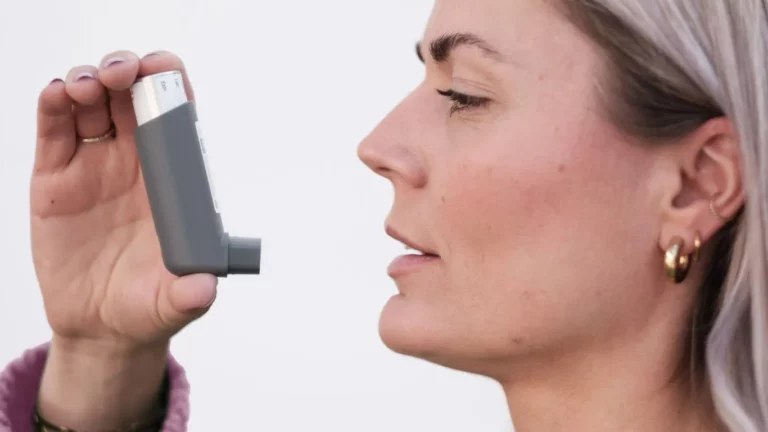Powerful Solutions for GERD and Clearing Throat Constantly
If you’ve ever found yourself clearing your throat constantly, it can be more than just an annoying habit—it might be a sign of something deeper going on. From my years working as a Medical Assistant in a busy Gastroenterology Clinic, I’ve seen how frequently GERD, or gastroesophageal reflux disease, plays a sneaky role in this persistent throat irritation. GERD isn’t just about heartburn or acid reflux; it can cause a range of symptoms that many people don’t immediately connect to the condition, including that frustrating need to clear your throat over and over again.
Understanding GERD and Its Connection to Throat Clearing

GERD happens when stomach acid frequently flows back into the tube connecting your mouth and stomach, known as the esophagus. This acid reflux can irritate the lining of the esophagus and even reach your throat, causing a variety of uncomfortable symptoms. One common complaint I hear from patients is that persistent throat clearing, which can be incredibly frustrating and sometimes even painful.
Why does this happen? When acid refluxes up into your throat, it irritates the delicate tissues there. Your body responds by trying to clear the irritation, leading to that repeated urge to clear your throat. It’s almost like your throat is trying to “reset” itself from the acid assault.
The Silent Symptoms of GERD
While many people think of GERD as just heartburn, it’s important to remember it can present itself in less obvious ways. Some of the symptoms I’ve personally seen in the clinic that tie into throat clearing include:
- Chronic cough that doesn’t seem related to a cold or allergies.
- Hoarseness or changes in voice, especially in the mornings.
- Sensation of a lump in the throat (also called globus sensation).
- Frequent throat clearing or the urge to cough.
- Postnasal drip-like symptoms without actual nasal congestion.
Patients often come in worried they have something more serious, but when we dig deeper into their history, GERD is frequently the culprit. These symptoms are sometimes called extraesophageal manifestations of GERD because they occur outside the typical area affected by reflux.
Why Does GERD Make You Clear Your Throat Constantly?

Let me share a bit from my daily work experience: a patient will come in, saying, “I just can’t stop clearing my throat—it’s driving me crazy!” After some questions, it becomes clear they’ve been ignoring mild heartburn or occasional acid reflux symptoms, thinking it’s no big deal. What they don’t realize is that the acid is irritating their throat lining and vocal cords.
This irritation causes inflammation, making your throat hypersensitive. The result? Your natural reflex to clear the throat kicks in frequently to try and soothe the irritation. But ironically, clearing your throat too much can also make the problem worse by causing more irritation. It’s a frustrating cycle.
Common Triggers That Worsen Throat Clearing in GERD
Based on what I’ve seen in the clinic, several factors can make this throat irritation and the constant urge to clear it even worse:
- Diet: Spicy foods, caffeine, alcohol, and fatty meals can increase acid reflux and throat irritation.
- Lying down after eating: This position makes it easier for stomach acid to flow backward into the throat.
- Smoking: It not only increases acid reflux but also directly irritates the throat lining.
- Obesity: Extra abdominal pressure can push acid upward more frequently.
- Stress: It might not directly cause acid reflux but can worsen symptoms by increasing stomach acid production.
Understanding these triggers is a great first step to managing your symptoms and hopefully cutting down on that constant throat clearing. Next, we’ll talk about some practical tips and medical options that can help ease this irritation for good.
Managing GERD-Related Throat Clearing: Practical Tips That Work

From my time working in a gastroenterology clinic, I’ve learned that tackling GERD and clearing throat constantly isn’t just about popping pills. Sure, medications help, but lifestyle tweaks often make the biggest difference—especially when it comes to that annoying throat irritation. The good news is, there are plenty of manageable habits that can reduce acid reflux and ease that persistent throat clearing.
Simple Lifestyle Changes to Ease Throat Irritation
I always tell patients: small changes can add up to big relief. Here are some of the most effective tips I’ve seen work firsthand:
- Adjust your eating habits. Avoid large meals, especially close to bedtime. Instead, try smaller, more frequent meals to reduce stomach pressure.
- Watch your diet. Cut back on known reflux triggers like spicy dishes, citrus fruits, chocolate, caffeine, and carbonated drinks. It can be tough, but swapping these out for milder options makes a huge difference.
- Stay upright after eating. Try not to lie down for at least two to three hours after meals to prevent acid from creeping back up.
- Elevate your head while sleeping. Using extra pillows or a wedge can help keep acid where it belongs — in your stomach.
- Quit smoking. I can’t stress this enough. Smoking not only worsens reflux but also irritates the throat lining, making that clearing urge worse.
- Lose extra weight. For many patients, shedding even a few pounds helps ease abdominal pressure and cuts down reflux episodes.
I remember one patient who was clearing his throat constantly and was convinced it was allergies. After some gentle guidance, he made these lifestyle shifts, and within weeks, the throat clearing was almost gone. It’s moments like these that remind me how powerful small changes can be.
When Should You See a Doctor for Persistent Throat Clearing?

While throat clearing can be annoying, it’s important to know when it’s time to get professional help. In the gastroenterology clinic, I’ve seen many cases where ignoring the symptom meant worsening issues down the road. So, if you’re constantly clearing your throat and suspect GERD might be behind it, don’t wait too long.
Warning Signs That Warrant a Medical Checkup
Here are a few red flags I always mention to patients:
- Throat clearing that lasts more than a few weeks.
- Difficulty swallowing or pain when swallowing.
- Persistent hoarseness or voice changes.
- Unexplained weight loss.
- Frequent heartburn that doesn’t improve with lifestyle changes or over-the-counter meds.
These symptoms could signal more serious complications from untreated GERD or other conditions, so getting evaluated by a healthcare professional is crucial. During visits, doctors might perform tests like endoscopy or pH monitoring to understand exactly what’s going on.
Medical Treatments for GERD and Throat Clearing

Once lifestyle changes are in place, sometimes medication is necessary to bring the reflux under control. Based on what I’ve witnessed, here are some common treatments that doctors recommend:
- Antacids: Great for quick relief of mild symptoms by neutralizing stomach acid.
- H2 blockers: These reduce acid production and are helpful for more frequent symptoms.
- Proton pump inhibitors (PPIs): Often prescribed for more severe or persistent GERD, PPIs are effective at healing irritated tissues and preventing acid production.
- Alginate-based therapies: These form a protective barrier on top of stomach contents, reducing reflux episodes.
It’s important to follow your doctor’s instructions carefully when taking these medications, as misuse or overuse can cause side effects. In the clinic, I always encourage patients to be open about their symptoms and any concerns about medication so adjustments can be made.
Finally, for some people with stubborn GERD symptoms, including persistent throat clearing, surgical options might be considered—but this is usually a last resort after other treatments haven’t worked.
From personal experience in a medical setting, I can say that understanding your symptoms and working closely with a healthcare provider is key to managing GERD-related throat clearing effectively. You’re not alone in this, and with the right approach, relief is within reach.
Long-Term Strategies for Managing GERD and Persistent Throat Clearing

By this point, you’ve probably picked up that managing GERD and the frustrating symptom of clearing your throat constantly is all about a combination of approaches. From what I’ve seen in my role as a Medical Assistant in a gastroenterology clinic, it’s not just a one-time fix but rather a lifestyle journey. If you don’t stay mindful of habits and treatment, symptoms can creep back, making throat clearing and discomfort an ongoing battle.
Consistency Is Key: Building Habits That Support Your Throat and Gut Health
One of the most important lessons I’ve learned from patients who successfully manage GERD is consistency. You can’t just make changes for a week or two and expect lasting results. Here’s what I recommend for the long haul:
- Stick to your dietary plan. Keep an eye on trigger foods, and don’t slip back into old eating patterns. Over time, your body responds well to the steady reduction of acid reflux.
- Maintain healthy meal timing. Avoid late-night snacks or meals right before bed. This helps prevent acid from moving upward when your body is lying flat and less able to digest properly.
- Keep your head elevated during sleep. I’ve seen how small adjustments here can dramatically reduce nighttime reflux, which often causes morning throat clearing.
- Regular exercise. It’s not only good for weight management (a big help for GERD) but also supports digestion and reduces stress, which can worsen reflux symptoms.
- Follow up with your healthcare provider. Regular check-ins ensure your treatment plan is working and that any adjustments are made early.
Honestly, some of the best success stories I’ve witnessed come from patients who treat their GERD management like caring for a garden—it requires regular attention and nurturing.
The Role of Voice Care and Throat Hygiene

Another piece of the puzzle, especially with constant throat clearing, is taking care of your voice and throat. The irritation from acid reflux can really take a toll on your vocal cords, and persistent clearing only aggravates the situation.
Tips to Protect Your Throat and Voice
From what I’ve gathered through patient education sessions and clinical experience, here are some useful strategies to reduce throat irritation and protect your voice:
- Stay hydrated. Drinking plenty of water helps thin mucus and soothe irritated tissues.
- Limit throat clearing. It’s easier said than done, but try gentle swallowing or sipping water instead of forceful clearing, which can damage your vocal cords.
- Practice vocal rest. Avoid yelling or talking loudly for long periods, especially if your throat feels raw.
- Consider voice therapy. In some cases, speech therapists can teach you exercises to reduce the urge to clear your throat and improve vocal function.
- Avoid irritants. Besides quitting smoking, stay away from dusty environments, strong perfumes, or anything that worsens throat dryness.
Patients who embrace these habits alongside their GERD treatment often report significant relief—not just in throat clearing but also in overall comfort and voice quality.
When to Reassess Your Symptoms and Treatment
Even with the best care, GERD can be unpredictable. It’s essential to stay alert for any new or worsening symptoms and communicate these with your healthcare provider. I often encourage patients not to “tough it out” if things get worse because early intervention can prevent complications.
Some things to watch out for include:
- Increased throat pain or difficulty swallowing
- Persistent coughing or choking episodes
- Weight loss or loss of appetite
- New or worsening hoarseness
If you notice any of these, it’s a good idea to book a visit. Often, additional testing or a change in treatment strategy can make a world of difference.
References and Resources
Disclaimer
This article is intended for informational purposes only and does not replace professional medical advice, diagnosis, or treatment. If you experience persistent symptoms like constant throat clearing or severe GERD, please consult a qualified healthcare professional for personalized care.

Camellia Wulansari is a dedicated Medical Assistant at a local clinic and a passionate health writer at Healthusias.com. With years of hands-on experience in patient care and a deep interest in preventive medicine, she bridges the gap between clinical knowledge and accessible health information. Camellia specializes in writing about digestive health, chronic conditions like GERD and hypertension, respiratory issues, and autoimmune diseases, aiming to empower readers with practical, easy-to-understand insights. When she’s not assisting patients or writing, you’ll find her enjoying quiet mornings with coffee and a medical journal in hand—or jamming to her favorite metal band, Lamb of God.







